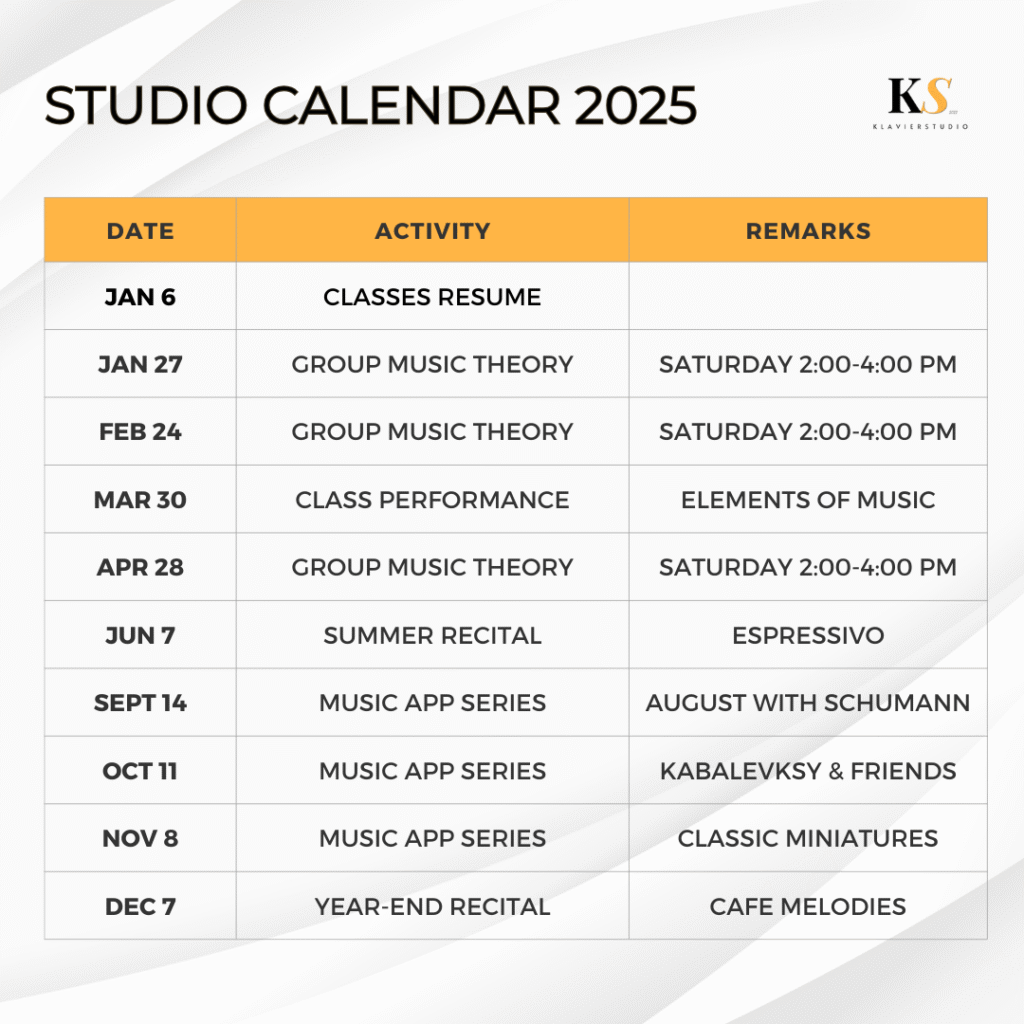Most children are ready between ages 5–7, when they can focus for short periods and recognize letters and numbers. However, every child is different. Some may be ready earlier, while older beginners can progress quickly, too.
Yes, students need regular access to an instrument to practice. A well-maintained acoustic piano is ideal, but a good-quality digital piano with weighted keys is also a great starting option.
Consistency matters more than long hours. Beginners should aim for 10–15 minutes daily, gradually increasing as skills grow. Short, focused practice sessions are more effective than occasional long ones.
Yes! Parents are welcome to observe from the waiting area. At home, encouragement and gentle supervision are valuable in building good practice habits.
Lessons start with a strong classical foundation—building technique, reading, and theory. As students progress, they are encouraged to explore other styles such as pop, jazz, and contemporary pieces based on their interests.
Every child progresses at a different pace, but with consistent practice, you’ll see noticeable improvement within a few months. Piano study is a journey—it builds discipline, focus, and creativity over time.
Yes! Recitals, group classes, and other events are offered throughout the year. These help students gain confidence, share music with others, and celebrate their progress.
Online lessons can be just as effective when students have the right setup—a reliable internet connection and a proper instrument. Some families even prefer the flexibility of learning from home.
Absolutely! Many adults find piano lessons rewarding, whether they’re fulfilling a lifelong dream, revisiting childhood lessons, or simply learning for relaxation.
Lessons begin with technical work such as scales, exercises, and theory to build a strong foundation. We then move into the main lesson material—pieces, reading, and technique development. To close, students engage in creative activities such as games, improvisation, or exploring favorite pieces, making learning both effective and enjoyable.
Yes! Lessons are designed to be engaging, with activities that match a child’s age and personality. We use creativity, movement, and even games to make learning enjoyable and effective.
We encourage a balance. Classical pieces develop discipline and technique, while popular songs fuel excitement and motivation. Both are included to keep learning meaningful and well-rounded.
Both. Private lessons focus on individual growth, while group classes build collaboration and performance confidence. Students benefit from experiencing both settings throughout the year.
We use clear weekly goals, fun challenges, and creative practice strategies. Parents also receive tips on how to support practice at home without pressure.
Theory is built into lessons so students don’t just play music—they understand it. This makes learning faster and empowers them to explore music independently.
